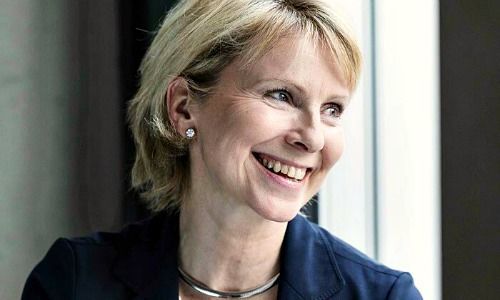Profits at the Swiss bank's European hub dropped on the year again. Boss Christine Novakovic is grappling with a complicated inheritance as well as an uncertain future.
The trend for UBS' so-called European bank is downward: the four-year old unit's profits went from 138.2 million euros ($163 million) in 2017 to 68.1 million euros one year later, shrinking even further last year to 46.7 million euros. Pretax profit last year was 81 million euros, according to its annual report.
More worryingly, growth with wealthy private clients in the region stagnated: UBS Europe expected 5.5 billion euros in new inflows, but clients actually pulled 2.1 billion euros from the bank instead. Every country save for Germany was negative, and its revenue margin on assets edged lower, though assets rose eight percent to 144 billion euros.
German Inflows
In Europe, the U.K. and Germany are UBS' primary markets for investment banking. The bank folded its London-based subsidiary into its European bank last March, after Britain voted to exit the European Union three years ago. The activities beat targets last year by three percent.
UBS said this year's result in the European bank is as difficult as last years, according to Swiss daily«Neue Zuercher Zeitung» (behind paywall, in German), which first reported the results. Assets stagnated from year-end levels as the pandemic hit to stock markets – though in Germany alone, UBS hiked client funds by more than one-tenth to 51 billion euros.
Murky Outlook
It represents a glimmer of hope for Christine, or «Christl» Novakovic, who took over the European bank last year in addition to her wealth management role. The numbers illustrate the delicate situation the 55-year-old Austrian inherited; an uncertain outlook blurs the view even further.
UBS Europe looks like a supertanker without many passengers: the unit employs 1,980 and maintains a pricey, modern Swiss booking platform for about as much money as tiny rival EFG International manages. The economics are challenging, especially given the differences in wealth management in each of its European markets.
Bulky Spending
Less than half of the 12 markets in Europe UBS is active in delivered a pretax profit (Britain, the Netherlands, Luxembourg, Austria, and Spain). Germany swallowed the treasury activities of the other countries, pushing it to a 53 million euro pretax loss. With 32 million euros, Britain posted the region's highest profit before taxes.
Novakovic's predecessor, Thomas Rodermann, had focused on squeezing cost savings out of the European hub. He wasn't entirely successful: last year, the unit's cost-income ratio was 91 percent, miles past its 77 percent goal. UBS' past and specifically legal problems remain a costly sticking point.
High-Stakes Battles
While UBS has either regularized or closed out untaxed assets, it is still fighting high-stakes legal battles in several countries. The most notable, a tax dodging and money laundering conviction in France, is due to appeal next year. A probe in Mannheim, Germany was settled three months ago, an Italian one two months ago.
Various European investigations into potential money laundering also loom. Germany's federal regulator Bafin is probing potential offenses. Results of an examination of UBS Europe's Italian arm termed it «severe,» while Spanish operations were found a «high-risk unit». A 2018 on-site check in Austria led to a so-called administrative proceeding over potential money laundering.




































